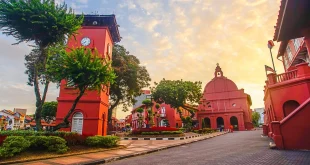Introduction to Romanian Cuisine
Are you a food enthusiast looking to explore the culinary scene in Romania while staying true to your halal dietary preferences? Well, you’re in for a treat! In this blog post, we’ll take you on a flavorful journey through Romanian cuisine and show you how to whip up delicious halal dishes right in the heart of Eastern Europe. So, grab your apron and let’s get cooking!
Understanding Halal Food
When it comes to halal food, it’s not just about what you eat – it’s a way of life for many individuals. Halal refers to what is permissible or lawful in Islamic law. It goes beyond the ingredients used; it also encompasses how the animals are raised and slaughtered.
Halal dietary laws prohibit certain foods like pork and alcohol, as well as any products containing gelatin derived from non-halal sources. The emphasis is on cleanliness, purity, and ethical practices.
For meat to be considered halal, it must come from animals that were healthy at the time of slaughter and processed in a specific way. This includes reciting prayers during the process to ensure respect for the animal’s life.
Understanding halal food is about respecting cultural and religious traditions while embracing diverse culinary experiences. Whether you follow a halal diet or not, being knowledgeable about different food practices can lead to greater appreciation and acceptance within our global community.
The Halal Certification Process in Romania
When it comes to ensuring that food meets the requirements of Islamic dietary laws, the halal certification process plays a crucial role. In Romania, obtaining halal certification involves thorough inspections and audits by certifying bodies to verify compliance with Islamic principles.
The certification process typically includes assessing ingredients, production methods, storage facilities, and overall adherence to halal standards. This rigorous evaluation ensures that consumers can trust the authenticity of halal products in the market.
Halal certification in Romania provides assurance to Muslim consumers that the food they purchase meets their religious beliefs and dietary restrictions. It also helps in promoting transparency and accountability within the food industry.
Businesses seeking halal certification must demonstrate a commitment to upholding these standards throughout their operations. By obtaining this certification, they not only cater to a specific consumer segment but also contribute to cultural diversity and inclusivity within society.
Popular Romanian Dishes that are Already Halal
Romanian cuisine is a delightful mix of flavors and traditions, offering a variety of dishes that are already Halal-friendly. One popular dish is “Sarmale,” cabbage rolls stuffed with a savory mixture of rice and minced meat, but can easily be adapted to exclude pork.
Another favorite is “Mămăligă,” a cornmeal porridge similar to polenta, often served with cheese or sour cream. This dish is naturally Halal as it typically does not contain any non-Halal ingredients.
“Mititei” are grilled sausages made from a blend of minced meats and spices like garlic and paprika. While traditionally made with pork, they can be prepared using Halal-friendly meats such as beef or lamb.
For those with a sweet tooth, “Papanasi” are fried doughnuts topped with sour cream and jam, making them a delicious treat that’s safe for Halal diets.
Exploring Romanian cuisine can offer Halal food enthusiasts an opportunity to savor unique flavors while staying true to their dietary restrictions.
Adapting Non-Halal Recipes to be Halal
Are you a food enthusiast who loves experimenting with new recipes but also adheres to the halal dietary guidelines? Adapting non-halal recipes to be halal is easier than you might think. With some simple substitutions and modifications, you can enjoy a wide range of cuisines while staying true to your beliefs.
When it comes to meat-based dishes, opt for halal-certified meats or replace non-halal options like pork with halal alternatives such as beef, chicken, lamb, or turkey. For seafood recipes, ensure that the ingredients are sourced from reputable suppliers and comply with halal standards.
In baking and cooking, substitute ingredients like gelatin with agar-agar or pectin for desserts. Use vegetable oils instead of lard or animal fats in savory dishes. Be mindful of hidden ingredients like alcohol-based flavorings and additives – always read labels carefully.
By making small adjustments to traditional recipes, you can savor diverse flavors while maintaining your commitment to halal principles. Get creative in the kitchen and explore new culinary horizons with confidence!
Recommended Places to Buy Halal Ingredients in Romania
When it comes to cooking halal recipes in Romania, finding the right ingredients is key. Luckily, there are several places where you can purchase halal ingredients to create authentic dishes.
In major cities like Bucharest and Cluj-Napoca, you can find specialized grocery stores that cater to the halal market. These stores offer a wide range of halal-certified products including meats, spices, grains, and more.
Additionally, many supermarkets in Romania now have dedicated sections for halal products. Chains like Carrefour and Auchan stock a variety of halal items, making it convenient for those looking to cook traditional Muslim meals at home.
For those who prefer online shopping, there are also websites that deliver halal ingredients straight to your door. This option provides accessibility and convenience for individuals living in areas with limited access to physical stores.
Exploring these recommended places will make it easier for you to source high-quality halal ingredients and embark on your culinary journey through Romanian cuisine.
Challenges of Finding Halal Food in Romania
Navigating the culinary scene in Romania as a halal eater can pose some challenges. While traditional Romanian cuisine is rich in flavor, many dishes contain ingredients that are not halal-friendly. Finding restaurants or stores that offer authentic halal options can be quite a task in certain regions of the country.
One of the main challenges faced by those seeking halal food in Romania is the limited availability of certified halal products and establishments. The lack of awareness and understanding about what constitutes halal food among locals can also make it difficult to find suitable dining options.
Moreover, language barriers may add another layer of complexity when trying to communicate specific dietary requirements at restaurants or while shopping for groceries. It’s essential for halal eaters to research and plan ahead before embarking on their culinary adventures in Romania.
Despite these obstacles, with perseverance and resourcefulness, it is possible to enjoy delicious halal meals even in a country like Romania. By exploring alternative cooking methods and sourcing ingredients from specialized stores, you can still savor the flavors of Romanian cuisine while adhering to your dietary preferences.
Tips for Cooking and Eating Halal in Romania
When cooking and eating halal in Romania, it’s essential to be mindful of ingredients. Check labels carefully for any non-halal additives or preservatives. Opt for fresh produce and whole foods whenever possible.
Consider exploring local markets or specialty stores that offer a wide range of halal products. Don’t hesitate to ask vendors about the origin and preparation methods of the food you’re interested in purchasing.
Experiment with traditional Romanian recipes by substituting non-halal ingredients with halal alternatives. Get creative in the kitchen while staying true to your dietary restrictions.
When dining out, communicate your dietary requirements clearly to restaurant staff. Many establishments are willing to accommodate special requests or provide information on their menu options.
Stay connected with the local Muslim community in Romania for recommendations on restaurants, shops, and events catering to halal preferences. Sharing experiences and tips can enrich your culinary journey in this diverse country.
Conclusion: Embracing Cultural Diversity Through Food
Embracing Cultural Diversity Through Food is a celebration of different flavors and traditions coming together on a plate. Whether you are in Romania or any other part of the world, the beauty of halal cooking lies in its ability to bridge cultures and bring people closer through shared meals. By understanding the principles of halal food and exploring how to adapt recipes, you can enjoy delicious Romanian dishes while staying true to your dietary preferences.
So, next time you find yourself in Romania wondering if you can cook halal recipes, remember that with a little creativity and resourcefulness, the answer is definitely yes! Let your culinary journey be a testament to the rich tapestry of global cuisine and the joy that comes from breaking bread with others. Happy cooking!


